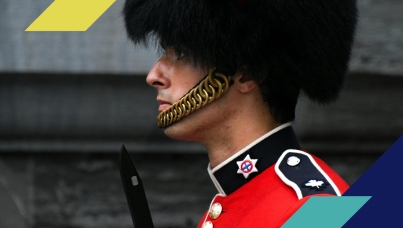Federal Political Scene September 2000
Approval of Prime Minister Chrйtien Still Strong (54%) But Slipping - Approval of Stockwell Day (49%) Trending Up
A Slim Majority (52%) of Canadians Say the Liberals Deserve to be Re-elected
However, In a Strict Head-to-Head Race, 56% Would Vote for Jean Chrйtien's Liberals as Opposed to Stockwell Day and the Alliance (36%)
Toronto, Ontario -- The results of an Ipsos-Reid/Globe and Mail/CTV poll reveal that amid rumours about a potential fall election, the Liberals continue to look strong (44%) nationally and continue to hold on to their solid support in Ontario (56%). The Alliance has maintained its solid second place position (25%) based on strong support in BC (43%) and Alberta (55%), while support for the NDP (9%) and the PCs (9%) continues at historic lows. Jean Chrйtien's approval as Prime Minister continues to be strong (54%) but has slipped marginally in recent months. In contrast, approval of Stockwell Day (49%) show signs of trending upwards. Only a slim majority (52%) say the Liberals deserve to be re-elected. However, when Canadians are forced to choose between Stockwell Day and the Alliance or Jean Chrйtien and the Liberals in a strict head-to-head contest, 56 percent would choose the Liberals while 36 percent would choose the Alliance.
These are the findings of an Ipsos-Reid/Globe and Mail/CTV poll conducted between September 25th and September 27th, 2000. The poll is based on a randomly selected sample of 1,841 adult Canadians. The results are accurate to within 177 2.3 percentage points, 19 times out of 20, of what they would have been had the entire Canadian population been polled. The margin of error will be larger within regions and for other sub-groupings of the survey population. These data were statistically weighted to ensure the sample's regional and age/sex composition reflects that of the actual Canadian population according to the 1996 Census data.
Liberals Look Strong (44%) Heading Into Potential Fall Election, Anchored by Strong Support in Ontario (56%)
With a fall election potentially around the corner, national support for the Liberals remains strong at 44 percent. However, their support is highly concentrated in the eastern regions of the country. They continue to dominate (56%) in Ontario and the Atlantic provinces (52%) while in Quebec they receive 40 percent of the popular vote. In contrast, Liberal support is much lower in Alberta (27%), Manitoba/Saskatchewan (33%) and BC (35%).
- Demographically, support for the Liberals is slightly higher among women (47%) as opposed to men (42%)
- Canadians with a university education (48%) are more likely than those without (43%) to vote for the Liberals.
- Low income Canadians (41%) are less likely than middle (45%) or high (47%) income Canadians to say they would vote for the Liberals.
Alliance a Solid Second (25%) with Strong Support in the West (43% - BC, 55% Alberta)
The Canadian Alliance continues to place a solid second (25%). However, support for the Alliance continues to be western based with 55 percent support among Albertans and 43 percent support among residents of BC. In Saskatchewan and Manitoba, the Alliance (35%) is running neck and neck with the Liberals (33%). Crucially, there is little indication that they are making inroads in the important electoral battleground of Ontario (21%). Furthermore, the Alliance only receives the support of one in ten residents of Quebec (11%) and the Atlantic provinces (11%).
- Support for the Alliance is much higher among Men (29%) as compared with women (21%).
- Older (29%) and middle aged (27%) Canadians are much more likely than younger Canadians (19%) to support the Alliance.
The NDP (9%) and the PCs (9%) Continue at Historic Lows
As the Liberals and the Alliance maintain their position as clear frontrunners, support for the PCs (9%) and the NDP (9%) continues at historic lows. The PCs receive their highest support among Atlantic Canadians (23%) while the NDP receives its highest support in Saskatchewan and Manitoba (20%).
Approval of Prime Minister Chrйtien Still Strong (54%) But Slipping - Approval of Stockwell Day (49%) Trending Up
The Prime Minister still receives the highest approval rating (54%) of any of the party leaders but he has slipped 6 points since March 2000 and is significantly off his high of 71 percent obtained in February '94. In fact, his current approval rating is the second lowest he has received, only slightly higher than the 52 percent approval he received in May '97.
- Younger Canadians (59%) are more likely than middle aged (54%) and older (47%) Canadians to say they approve of Jean Chrйtien's performance.
Meanwhile, approval of the way Stockwell Day has performed as leader of the Official Opposition and the Canadian Alliance is trending up. His approval (49%) has increased 4 points since July 2000 (45%) and he is currently two points higher than Preston Manning's highest approval rating.
- Men (54%) are much more likely than women (45%) to approve of Stockwell Day's performance.
Alex McDonough receives 45 percent approval for her performance as leader of the NDP while Joe Clark receives 41 percent approval as leader of the Progressive Conservatives. In Quebec, 49 percent say they approve of Gilles Duceppe's performance as leader of the Bloc Quebecois.
A Slim Majority (52%) of Canadians say the Liberals Deserve to be Re-elected
A slim majority (52%) say that the Liberals "deserve to be re-elected" compared with 44 percent who say they "do not deserve to be re-elected" and 4 percent who say they "don't know". These results are slightly off those from March 2000 (when 56% said the Liberals deserve to be re-elected and 39% said they do not) but higher than the results from March '97 -- just before the last election (48% they deserve to be re-elected, 42% said they do not).
However, In a Strict Head-to-Head Race, 56% Would Vote For Jean Chrйtien's Liberals as Opposed to Stockwell Day and the Alliance (36%)
When Canadians are asked to "imagine for a minute that you can ONLY vote in the next federal election for either Stockwell Day and the Alliance Party or Jean Chrйtien and the Liberal Party", 56 percent say they would vote for the Liberals while 36 percent say they would vote for the Alliance. In Ontario, two-thirds (66%) say they would vote for the Liberals compared with only 28 percent for the Alliance. In contrast, 63 percent of Albertans would vote for the Alliance over the Liberals (33%).
- When forced to choose between the Alliance and the Liberals, younger Canadians (63%) are much more likely to choose the Liberals than either middle aged (54%) or older (51%) Canadians.
An analysis of voters' second choices reveals that the Liberals show more growth potential than the Alliance. Overall, if voters could not vote for their first choice, 21 percent would shift their vote to the Liberals while only 11 percent would shift their vote to the Alliance. The Liberals are the second choice of 50 percent of PC supporters, 50 percent of NDP supporters, 30 percent of Bloc supporters and even a third (32%) of Alliance supporters. In contrast, the Alliance would only capture 16 percent of PC supporters, 11 percent of NDP supporters, 10 percent of Bloc supporters and only 17 percent of Liberal supporters (about half the number of Alliance supporters the Liberals would attract). The key is Ontario where in the head-to-head analysis the Liberals pick up 10 points (from 56% to 66%) while the Alliance picks up only 7 points (from 21% to 28%).
For more information on this news release, please contact:
Darrell Bricker
President and COO
Public Affairs
Ipsos-Reid
(416) 324-2900



